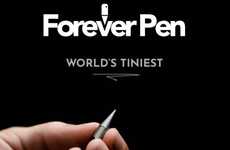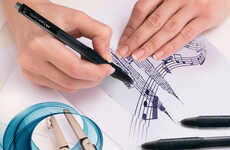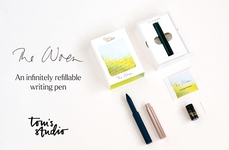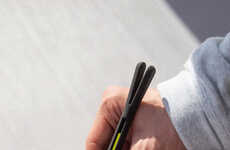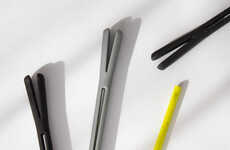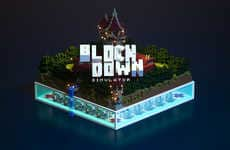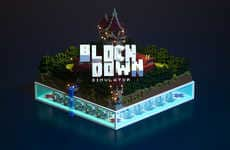
The Scribit Pen is Made Using Natural Fibers and Water-Based Ink
Laura McQuarrie — December 4, 2020 — Eco
References: carloratti & dezeen
Designed for Carlo Ratti Associati's drawing robot Scribit, the Scribit Pen is made of natural fibers and water-based edible ink and it's a concept that could potentially introduce the world's first fully compostable marker pen. The compostable marker pen is designed to break down in a matter of six months, and it is housed in a barrel made of either reusable wood, bioplastic or anodized aluminum.
With the design of the Scribit Pen, the Carlo Ratti Associati team recognizes that billions of markers are sent to the landfill each year. To support a circular economy, the team says, "we arrived at the innovative concept to create a cartridge that can be separated from the barrel, we tested a large amount of organic fibres in order to produce the biodegradable cartridge with the optimal performance."
Image Credit: Carlo Ratti Associati
With the design of the Scribit Pen, the Carlo Ratti Associati team recognizes that billions of markers are sent to the landfill each year. To support a circular economy, the team says, "we arrived at the innovative concept to create a cartridge that can be separated from the barrel, we tested a large amount of organic fibres in order to produce the biodegradable cartridge with the optimal performance."
Image Credit: Carlo Ratti Associati
Trend Themes
1. Fully Compostable Marker Pens - The concept of fully compostable marker pens made from natural fibers and water-based ink presents an opportunity for disruptive innovation in the stationery industry.
2. Circular Economy - The use of organic fibers and the ability to separate the cartridge from the barrel in marker pen design supports a circular economy, offering potential for disruptive innovation in waste management and recycling industries.
3. Sustainable Material Alternatives - The development of reusable wood, bioplastic, and anodized aluminum barrels for marker pens offers disruptive innovation opportunities in the sustainable materials industry.
Industry Implications
1. Stationery - The concept of fully compostable marker pens made from natural fibers and water-based ink presents an opportunity for disruptive innovation in the stationery industry.
2. Waste Management - The use of organic fibers and the ability to separate the cartridge from the barrel in marker pen design supports a circular economy, offering potential for disruptive innovation in waste management and recycling industries.
3. Sustainable Materials - The development of reusable wood, bioplastic, and anodized aluminum barrels for marker pens offers disruptive innovation opportunities in the sustainable materials industry.
3.4
Score
Popularity
Activity
Freshness


